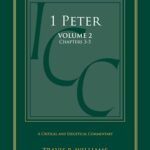“With a View to the Administration of the Fullness of Times”: The Relationship of the Church to the Kingdom
While the dispensational community has rightly pointed out that NT never posits identity between the Christian Church and the Messianic Kingdom, the relationship of the Church to the Kingdom is sometimes murky in dispensational thought. Paul in Ephesians 1:10 tells us that the outworking of the “mystery” of the Church is always to be carried out “with a view to the administration of the fulness of times”—the Kingdom (Eph 1:10). But what exactly does he mean by this?
The answer to the question is not singular; still, one answer seems to dominate, viz., that the church holds the keys to the kingdom in the present age. In fact, of the nineteen uses of βασιλεία in the NT epistles, fully half of them occur in contexts of church membership, most often that of church discipline.
The first such use of the keys appears in Matthew 18:15–18, the locus classicus of church discipline. After detailing the process of church discipline to its terminus in excommunication, Jesus adds this often-overlooked comment: “I tell you the truth, whatever you bind on earth will be bound in heaven, and whatever you loose on earth will be loosed in heaven.” His point is that the Church has an extraordinary role in determining the spiritual status of professing believers seeking entry into the Kingdom of God. So important is the Church’s role in this matter that the heavenly court nearly always is in step with the earthly one: “Whatever [the church] binds on earth will be bound in heaven, and whatever [the church] looses on earth will be loosed in heaven.”
The foundational use of the keys is a joyous one. The church examines the professions of those who seek membership, then gladly places the imprimatur of baptism on them, thus “guarding the door” against imposters. While not diminishing the joy of such occasions, the NT Scripture-writers nonetheless urge their readers to be sober in this assessment:
- In the second chapter of his letter, James warns the church not to base acceptance of members on worldly standards (i.e., wealth), but rather on “rich faith” as corroborated by “good works.” His reason? “God has chosen those who are poor in the eyes of the world to be rich in faith and to inherit the kingdom he promised those who love him” (v. 5).
- Paul likewise argues that “your perseverance and faith in all the persecutions and trials you are enduring…is evidence that God’s judgment is right, and you will be counted worthy of the kingdom of God, for which you are suffering” (2 Thess 1:4–5).
Periodically, however, the church is called to review its initial assessment and make corrections (which proves that the church’s assessment, while exceedingly important, is not so infallible as Rome suggests—but I digress). In some cases, the church must determine that an unregenerate person has intruded and must be formally returned to the realm of Satan (1 Cor 5:5) as a “pagan” or worldling (v. 17). Note the following from the NT epistles:
- After completing what is arguably the most severe NT passage on church discipline in the Christian Scriptures, (1 Cor 5), Paul continues in chapter 6 to chide the church for not making proper judgments within their membership. Rather than adjudicating disputes within the body by following Christ’s instructions about church discipline, members were suing each other in secular courts like the heathen, cheating and defrauding one other publicly (vv. 1–8). Paul reminds his readers that occasions like these were tailor-made for the use of the “keys” (vv. 9–10): “Do you not know that the wicked will not inherit the kingdom of God? Do not be deceived: Neither the sexually immoral nor idolaters nor adulterers nor male prostitutes nor homosexual offenders nor thieves nor the greedy nor drunkards nor slanderers nor swindlers will inherit the kingdom of God.”
- In Galatians 5, after warning his readers that “a little leaven works through the whole batch of dough” and urging them to make the offenders “pay the penalty” (vv. 9–10), he explains the basis for his expectation: “Those who live like this (i.e., gratifying the flesh) will not inherit the kingdom of God (v. 21).
- In Ephesians 5, Paul warns the church not to permit within “God’s holy people,” to be in “partnership with,” or allow “among themselves” any who openly engage in sin, offering as his reason that “no immoral, impure or greedy person—such a man is an idolater—has any inheritance in the kingdom of Christ and of God (v. 5).
- Paul’s use of kingdom language in Romans 14:17 and 1 Corinthians 4:20 also falls into this listing but more obliquely. The three above are adequate to the argument here made.
Note the necessary conclusions that flow from these texts:
(1) In every case the Kingdom is not yet in effect. These texts instead are cast uniformly as a promised inheritance, often in the future tense, and anticipate events not yet effected. If the Church is the Kingdom, then the syntax is all wrong.
(2) The Church has an extraordinary role in adjudicating “on earth” what will later be true “in heaven,” lending extreme import to the task of “guarding the door” of the assembly. In short, the primary task of the Church is to prepare to serve as Christ’s mediatorial queen, which will “have neither spot, nor wrinkle, nor any such thing” (Eph 5:27) when Christ’s Kingdom commences.
(3) These passages, collectively, inform the Church what it means to be “workers for the kingdom of God” (Col 4:11). Our task is to recruit and perfect a constituency for a Kingdom that will be established supernaturally by our Lord Christ in the age to come.
(4) While the Church itself is no kingdom, Paul’s “mystery” (viz., the Church) is not unrelated to Christ’s Kingdom. As noted above, Church life is always conducted “with a view to the administration of the fullness of the times.”




Great insight!
Dr. Snoeberger,
Thank you again for your insighful comments. It is refreshing to read an analysis of various NT texts in light of the clear distinction between the church and the kingdom.